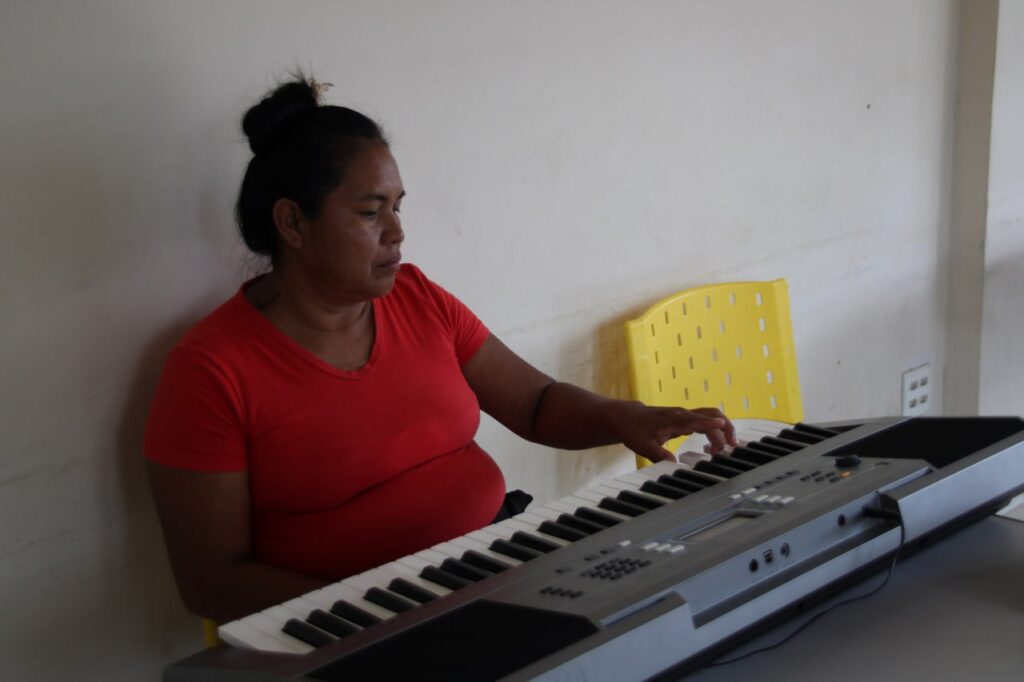The World Refugee Day is another reason for highlighting the empowerment of the refugees, who even in adverse situations, build paths of hope and transformation for their families and peoples. On this day, the Fraternity – International Humanitarian Missions (FIHM) particularly highlights the value, the course, the knowledge and the contribution of the Venezuelan indigenous refugees in Roraima. These people, in their majority being in vulnerable situations, are managing to place themselves in Brazilian society through activities promoted by the Fraternity – Humanitarian Missions (FIHM) through the Indigenous Cultural and Training Center (CCFI) .
Refugee immigrants, when they leave their countries, their society or their community, in the case of the indigenous peoples, and come into another country with a different culture and a different language, have a need of the knowledge and tools that allow them to integrate into that society.
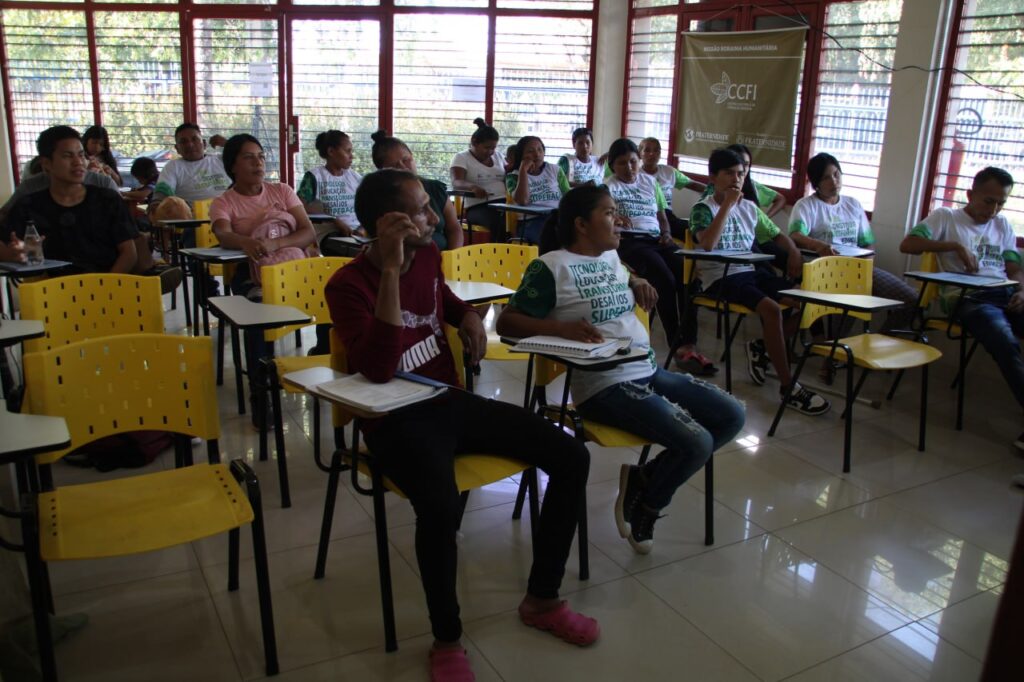
With this in mind, the Roraima Humanitarian Mission (MRH) offers training courses to provide the refugees with technical and linguistic knowledge within a structure and context that allows the participants to become involved with the social aspects that generate a feeling of belonging. For example, through the language courses, non-Brazilians find out about local customs. Furthermore, they are offered courses on supporting entrepreneurship, which includes consulting and mentoring done by Brazilians, where through more informal conversations, concepts are introduced together with a structure of knowledge and a feeling for the place.
Those activities seek to contribute to social, cultural and educational changes in contexts of humanitarian receptivity. Jeen, one of the women indigenous refugees, shared her experience on how participating in the CCFI allowed her to build a path of transformation in her life. She describes: “We immigrated through a need for medical health and we were thinking of returning immediately afterwards because we felt a lack of space and environment for us, but when we experienced the treatment we received, mainly here in the CCFI , we felt that support, we felt that hand of friendship, not only with the courses, but also in the human aspect, because it affects the person, to lift up their self-esteem and remove that sense of loss. That helped me a lot because now my state of mind is different. I thank God, because now I feel that I have the tools to continue forward and undertake a life in a country that wasn’t my own, but which gave me the tools.”
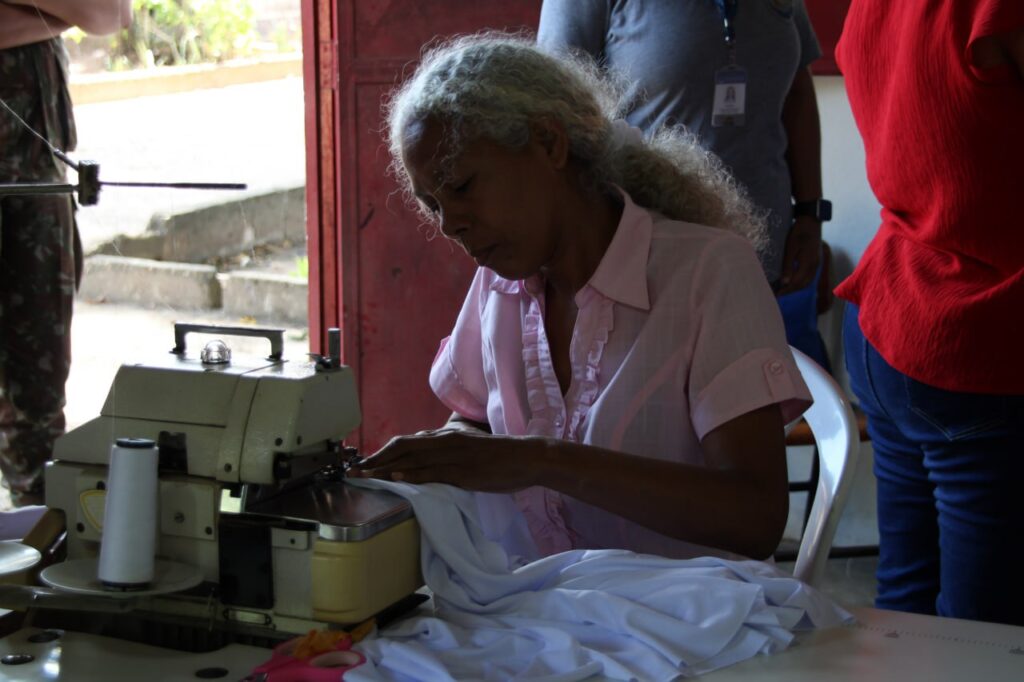
Jeen also describes how, through the courses she took in the CCFI , she managed to realize one of her dreams. She shared that she came from a dysfunctional family and that she had to leave her place of origin when very young. Because of that, she was never able to learn to weave as her people do, which she considers lovely.
Now, with the courses she took, she can learn to weave like her family does in Venezuela.
Other specific actions carried out in the CCFI , which seek to promote participation of the refugees in its educational and cultural activities, is the Open House event. This event shows what was done in previous years and, above all, seeks to give voice to each indigenous person, appreciating their knowledge and their opinion. Based on suggestions given in that event, the Roraima Humanitarian Mission team plans and builds the stages for the current year or for the next year in terms of trainings, support and entrepreneurship, and workshops about indigenous knowledge and traditional wisdom.
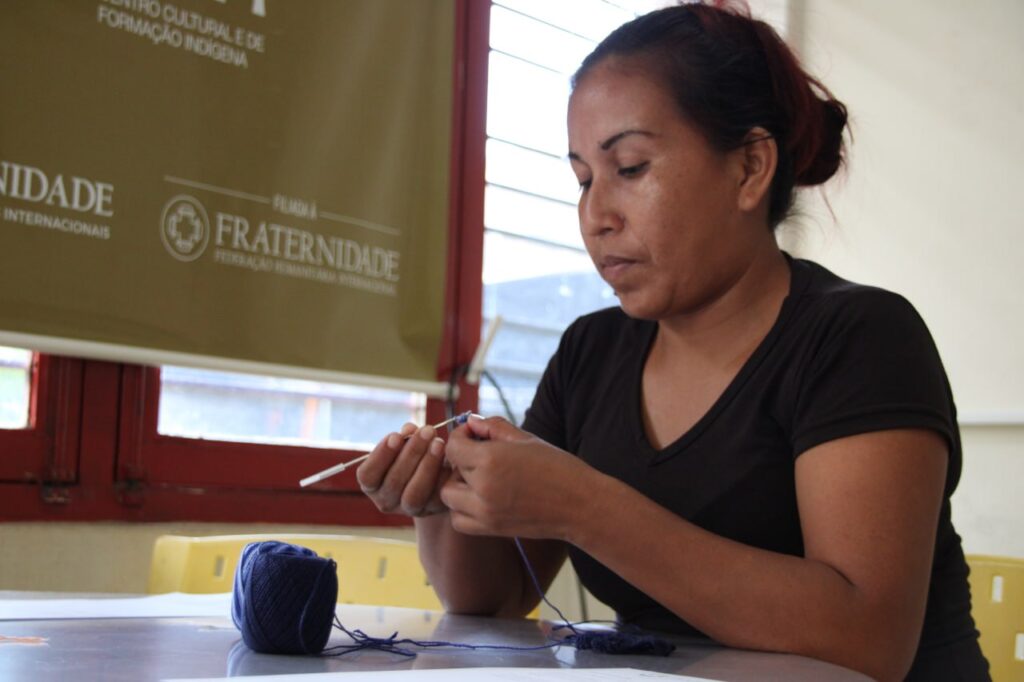
For Juan Diego, a humanitarian volunteer of the Fraternity – Humanitarian Missions (FIHM) , one of the most significant impacts of the activities hosted by the mission is that the refugees progress in their social, economic and cultural autonomy in Roraima, and in Brazil in general.
According to him, when a person or a family begins to gain autonomy, be it through learning a language or knowing local customs better, how the society or businesses function, they gain more self-confidence and the family gains more unity and identity. When that confidence and autonomy are generated, eventually, the refugees can take a step out of the shelter, can have a house, initially not their own, but rented, get a job or begin a business. Juan Diego mentions that there are already some examples of people who gained more confidence, both technical and personal, and at the same time, managed to find a job and rent a house outside of the shelter, including some cases of people who have been doing this for one or two years.
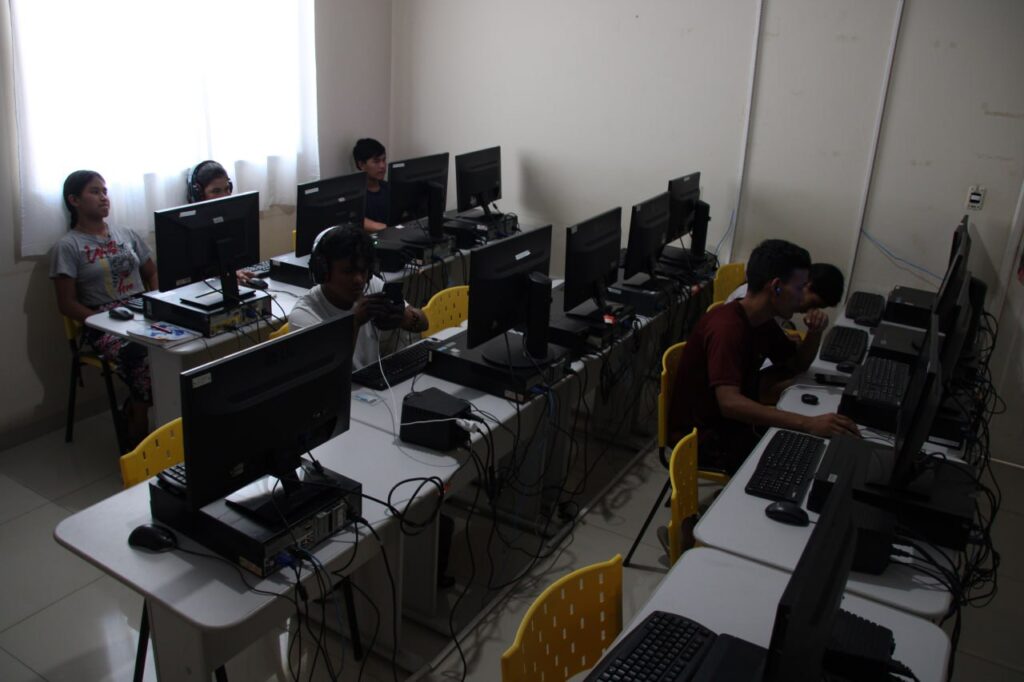
The humanitarian approach adopted by the Fraternity – Humanitarian Missions (FIHM) seeks to value indigenous knowledge and the autonomy of the community. In the indigenous knowledge workshops, such as traditional medicine, cotton spinning, natural pigments and painting, as well as in the indigenous fairs, there is an indigenous person who has expertise in a specific area and this focuses the workshop or the activity. Meanwhile, the exchange of knowledge and wisdom occurs in a natural way in those workshops. For example, if someone is teaching how to make a traditional indigenous medication, many times there are people who also know how to do that very medication or another medication based on that same recipe, and this encourages an exchange and expansion of that knowledge, showing more than one way of making that same medication.
The indigenous fairs are also a place for exhibiting various handicraft products, paintings, and clay pots, among other things, that count in the presence and union of various indigenous tribes. In some previous fairs, there were 17 different indigenous peoples present. This generates a space where the indigenous people can look at their handicrafts and the handicrafts of other tribes, encouraging an exchange of current and ancestral knowledge. In this way, the knowledge gradually adds up, enhancing the culture in the meeting of the tribes.
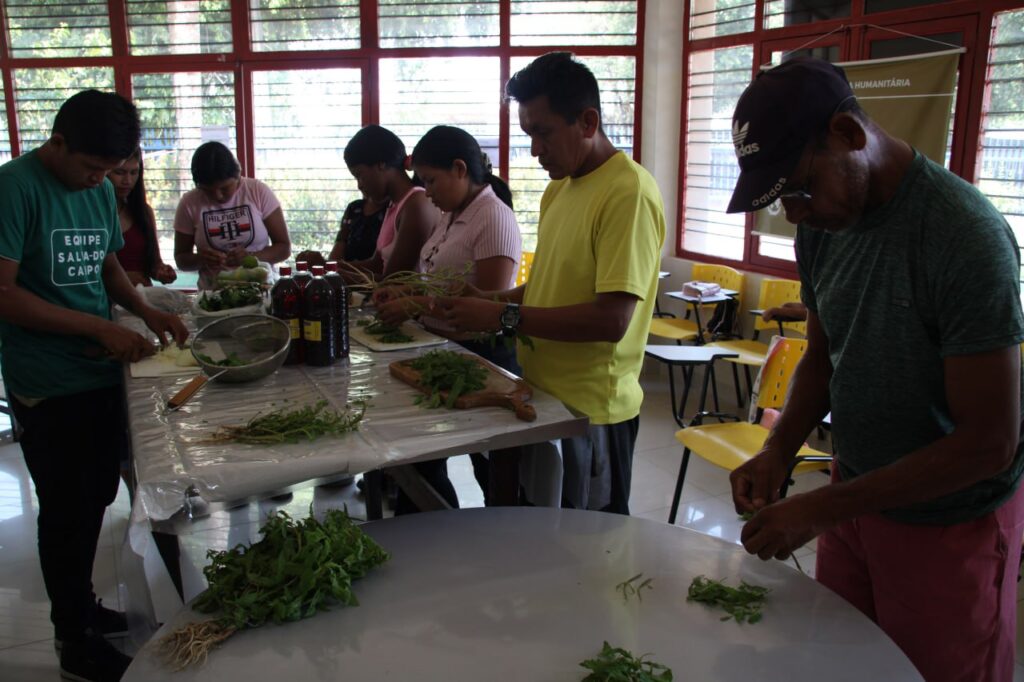
To provide a better response to the crisis situation, the social and humanitarian emergency, and take care of the needs of people found in that situation, the Fraternity – Humanitarian Missions (FIHM) has a direct and continuous dialogue with all the indigenous beneficiaries which it supports and cares for. This allows for feedback and direct knowledge to be gained about the needs of the indigenous peoples and what they are looking for, be it in entrepreneurship, personal growth, entering the job market, in society, or in school.
Aajhmaná, from the MRH coordination, says that, through this feedback, the Fraternity – Humanitarian Missions (FIHM) begins a dialogue with other organizations and institutions that are already active in the Boa Vista scenario so that together, they are able to provide a better response to the situation. “When the demand comes from a sector which doesn’t yet exist or is not taken care of by other local institutions, we look for contact with institutions and people, volunteers that are outside of the context of Boa Vista. In this way, we can articulate a network of institutions and people which can take care of the needs of the communities, making the empowerment of the affected communities as well as vulnerable people possible, and providing autonomy and confidence so they can tread their own path.
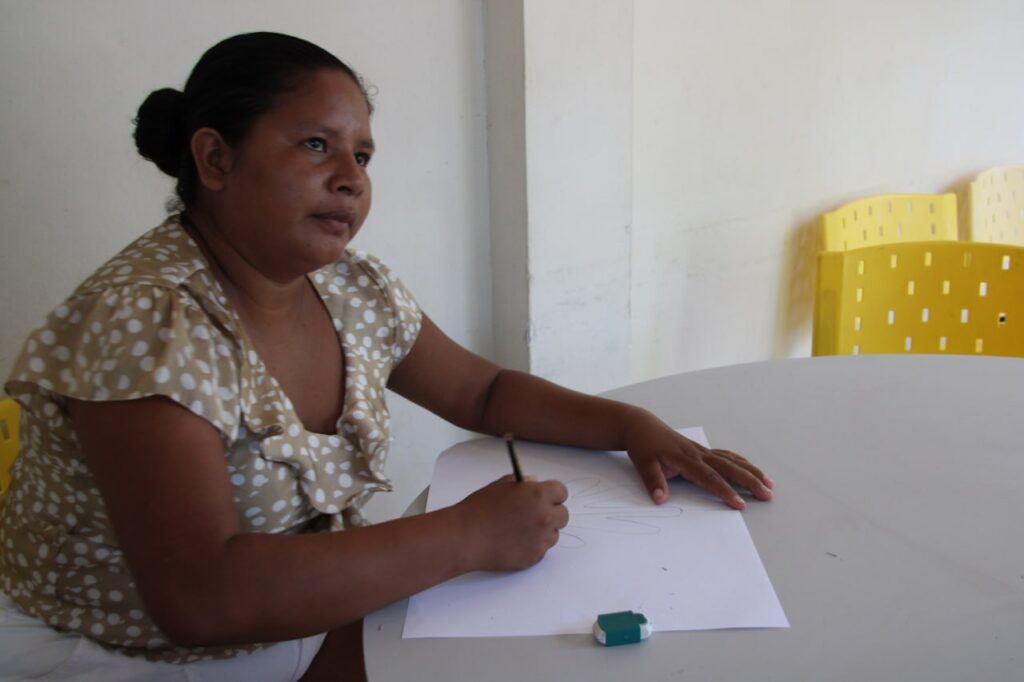
Aajhmaná also mentions that a fundamental basis of essential humanitarian standards is to always place the affected people, the vulnerable people, at the center of the humanitarian response. In any humanitarian crisis, it is necessary to take the person into account, hear them and take their context, their religion, their culture, their food habits, their cultural formation into consideration. In this sense, a very important point is to always keep in mind that people must be the subjects of their own change, and place them at the center of the response. Aajhmaná tells us that those people have the power, the resilience and the knowledge to decide their path and their future; they have the best answer to their problem. Many times, they don’t have the means to carry out this answer, to make it happen, but the answer already exists. The role of a humanitarian institution active in this context is to build bridges and connect the means so that the solution can manifest.
Hope is a feeling of inner renewal and commitment to personal and social transformation. In contexts of vulnerability, it reveals itself as a force that supports the journey, even in the middle of adversity. In humanitarian work, such as what is done with refugee populations, hope is materialized through actions that restore the dignity, the belonging, and a vision for the future. To take on a journey (as the refugees throughout the world do) is typical of someone who is looking for the meaning, the redefinition of life through striving and pure essence. It is that impulse that moves both those who arrive and those who take them in: walking with hope and recognizing each step, each gesture of solidarity, can be a turning point when born of the commitment to others and with life in its power to recommence.
